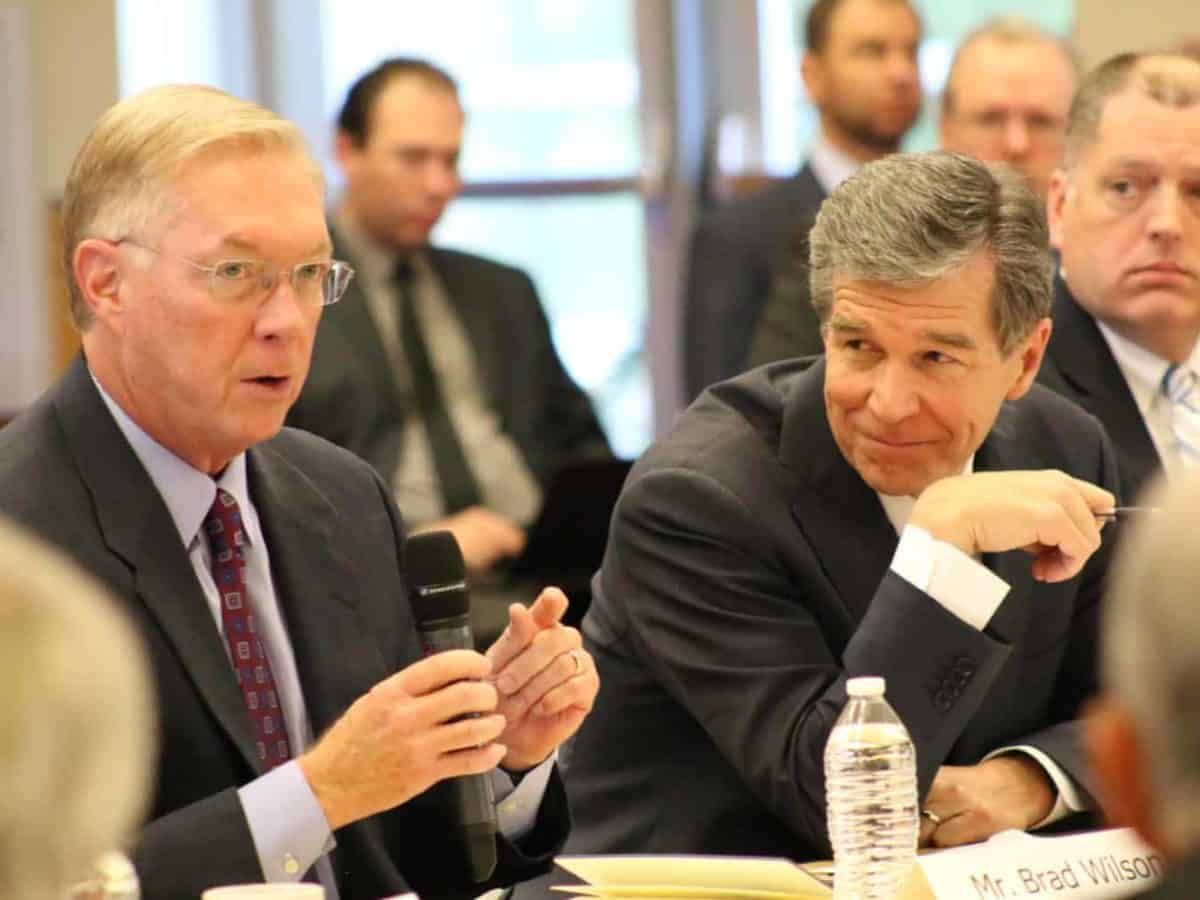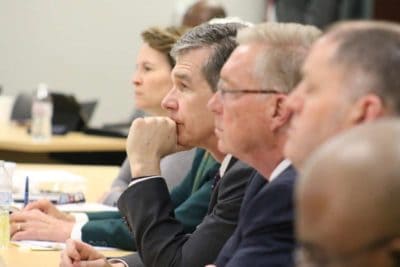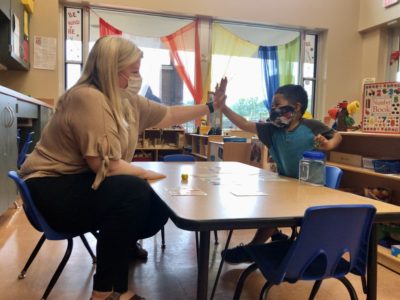
In the nation’s capital, spending-and-tax plans add up to billions and trillions. In the state capital, budget proposals come in the millions and billions. And in both seats of government, debates over the top-dollar figures often obscure how the policies and funded programs would affect people’s lives.
In Washington this week, President Biden and Democratic congressional leaders scrambled to sustain an aggressive agenda of $1.2 trillion in infrastructure improvements and $3.5 trillion in economic and social initiatives. The Biden agenda would increase federal spending on pre-K, child care for working families, community college tuition assistance, clean energy development, housing, and more.
In Raleigh, meanwhile, Gov. Roy Cooper sought to rally support for his public school agenda in advance of what he called “trilateral” negotiations. The Democratic governor expressed a measure of hope in the “willingness” of House and Senate Republican leaders to negotiate over a still-unresolved biennial budget.
The Commission on Access to Sound Basic Education, an advisory panel appointed by the governor, met on Tuesday and reviewed the education appropriations under consideration, as well as the status of the Leandro school finance court case. The commission adopted a resolution to “urge all state bodies, entities and agencies to take all necessary actions to implement and fund the state’s plan” submitted to Superior Court Judge David Lee.
Republicans have pushed back by defending the legislature’s prerogative to appropriate. They have also engaged in a coming-and-going argument. In one counter argument, they point to recent comments by retired Judge Howard Manning Jr., who undercut his own long efforts in the Leandro case by saying more money isn’t necessary to providing a sound, basic education. And then they argue, why not apply the flow of federal pandemic-recovery money to the education plan?
Neither the governor nor the commission directly criticized Republican lawmakers, while making their own arguments for increased state funding beyond the levels provided in the House and Senate budgets. In his discussions with executives on locating businesses in North Carolina, Cooper said, “The number one issue is a talented, educated workforce.” North Carolina, he said, has a “transformational opportunity.”
An appeal to the people
For its part, the commission amended the original draft resolution to deliver a dramatic assessment of the state’s extraordinary availability of funding with which to carry out the state’s education plan over two fiscal years. The state, says the resolution, “has an unreserved cash balance exceeding $7 billion and anticipated recurring revenues of $5 billion above the current base budget.”
The commission also heard an update on the “remedial plan” flowing out of the Leandro case. First-rank priority is to fill all schools with “well prepared, high-quality” teachers and principals. Competitive professional pay is key to reaching that objective, with sustained state funding required through eight years under the plan.
Aside from educators’ pay, the plan calls for an array of expansions and enhancements: for example, increased allotments for children with disabilities and disadvantaged students, increased funding for the Teaching Fellows and Principal Fellows programs, support for high-poverty schools, and funds for teacher assistants and career development coordinators. The plan would expand NC Pre-K and increase funding for Smart Start.
In Raleigh as well as in Washington, the atmosphere these days is conditioned by commentary on the often-inscrutable legislative process, partisan rivalry, and concern over a looming “constitutional crisis.” The governor and the commission he appointed attempted this week to bolster their position by appealing to the electorate.
“The general public hearing the voice of this commission is important at this point in time,” said commission chair Brad Wilson.
A divided electorate doesn’t speak with one voice. Still, public education requires a marshalling of public will and the insertion of supportive voices into the legislative and political dynamics of North Carolina.
Recommended reading



